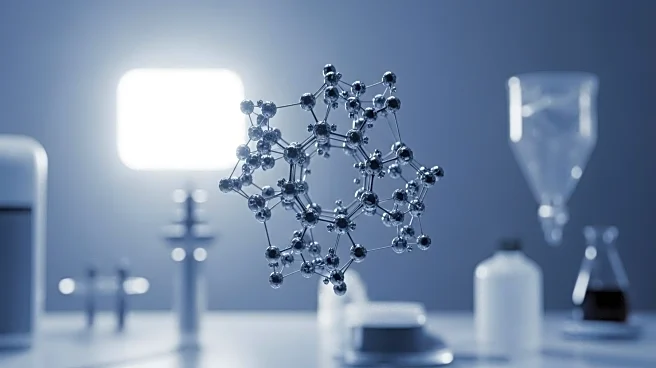What's Happening?
Researchers have developed a new delivery system for mRNA vaccines using albumin-recruiting lipid nanoparticles (EB-LNPs), which show promise in avoiding liver accumulation and potential hepatotoxicity associated with traditional PEG-LNPs. This innovative approach, detailed in Nature Materials, enhances lymphatic drainage and targets immune cells more effectively. The study highlights the potential of EB-LNPs in preclinical models for cancer and infectious diseases, offering a safer and more efficient method for mRNA delivery.
Why It's Important?
The development of EB-LNPs represents a significant advancement in mRNA vaccine technology, addressing safety concerns related to liver toxicity. This new delivery method could improve the efficacy and safety of mRNA vaccines, which have become crucial in combating infectious diseases and cancer. By reducing the risk of adverse effects, EB-LNPs could facilitate broader acceptance and application of mRNA vaccines, potentially leading to more effective public health interventions and personalized medicine approaches.
Beyond the Headlines
The use of albumin nanoparticles in vaccine delivery could pave the way for further innovations in drug delivery systems, enhancing the precision and targeting of treatments. This advancement may also stimulate research into other nanoparticle-based delivery methods, expanding the possibilities for treating a wide range of diseases. The focus on reducing side effects and improving targeting efficiency aligns with the broader trend towards personalized medicine, where treatments are tailored to individual patient needs.









